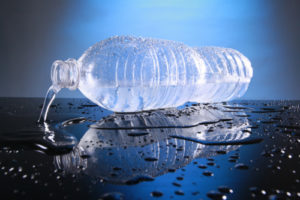Drink more water. Stay hydrated. Water is good for you. These are the messages that we hear over and over as we pursue a healthy lifestyle, strive to lose weight, study the advantages of yoga vs pilates or overcome many chronic conditions. It seems that water is a vital part of life – and it’s accurate. The problem is, it seems every “expert” has a different opinion of just what is the best way to get this life sustaining substance. There are many different messages out there about what is the best water, the best source – what’s healthy and what isn’t. How do you cut through all the hype and get to the truth? The answer isn’t as cut and dry as you might think.
The importance of staying well hydrated.
Water is essential for our very survival. It keeps our organs functions properly, is a vital component of digestion, and it even helps us have a healthy spine. It helps to regulate body temperature and lubricates the joints. In fact, you may not realize it, but most of your body is composed of water:
- Lungs – 83%
- Kidneys and muscles – 79%
- Heart and brain – 73%
- Skin – 64%
- Bones – 31%
The average adult female requires around 2.2 liters of water per day, while the average adult make requires around 3 liters. Most of this comes from drinking fluids, but some comes from food that is consumed. Dehydration is a serious condition and can cause serious damage to the body. Severe and prolonged (about 3 days) dehydration can be deadly.
The truth about bottled water.
There has been a lot of debate about bottled water in the past few years. At the center of the controversy are two main issues: much of the bottled water is said to be nothing more than tap water, and in the US alone, more than 60 million water bottles find their way to landfills every single day. Those are some pretty serious issues.
The truth is, judging by the best water softener studies, it’s clear to see that almost half (around 40%) of bottled water is just tap water. So, what’s the big deal about tap water? It is largely known to contain chemicals that are not only toxic to humans, but many are also linked to certain cancers. Chlorine, arsenic, and fluoride are some of the more common chemicals found in tap water. Things aren’t looking good for tap water, but if so much bottled water is tap, then what can you do?
And then there’s those plastic bottles.
Before we explore the safer water options, it is worth taking a look at the plastic bottles that are used. The materials used to make water bottles are widely known to contain deadly, cancer causing carcinogens like Bisphenol A (BPA), polyethylene terephthalate (PET), and phthalates. Each of these pose significant risks to your health.
Even if you choose a bottle that is BPA free (like PET bottles) you could be exposing yourself to other hazardous substances. For instance, PET bottles are made of a soft plastic that is extremely difficult, if not impossible, to clean. This can leave some unsavory residue like food, saliva, and even fecal matter to contaminate your water. The more the bottles are reused, the greater the risk of these and other contaminants making their way into your water.
What is a safer, healthier alternative to bottled water?
Actually, tap water is the safer, healthier alternative to bottled water – but not straight out of the tap. All tap water should be run through a high-quality water filtration system before you use it. Without the filtration, you run the risk of consuming contaminants like harmful chemicals, bacteria, and even heavy metals. So, what should you do?
Ditch the plastic bottles and choose glass or stainless steel instead. Next, filter your tap water using a high-quality carbon filter. Purchase a water filter and keep in contact with the water softener maintenance. Store your water in a ceramic or glass container. Do not heat or cook food or water in anything made of plastic or Styrofoam. In fact, avoid drinking or eating from plastic altogether. If you must though, do not cut into the plastic while you are eating or drinking and do not expose the food or water to a microwave, high heat, or the sun.
Drink your water, but make sure you are doing it in the healthiest way possible – on tap and filtered!

Leave a Reply